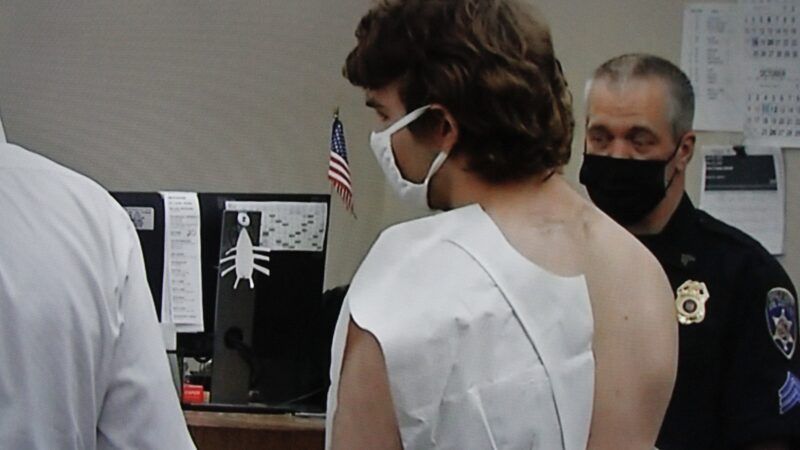Twitch Removed the Buffalo Shooter's Livestream in 2 Minutes
Maybe it's not a good idea for the government to prohibit all viewpoint-based moderation on social media.

A white teenager opened fire on a supermarket in a black neighborhood in Buffalo, New York, on Saturday. At least 10 people were killed and three were wounded. Most of the victims were black.
The alleged killer, 18-year-old Payton Gendron, released a lengthy manifesto outlining his white supremacist and anti-Semitic beliefs. He claimed that he was radicalized by reading online about the "great replacement theory," the conspiratorial idea that ethnic Europeans are gradually going extinct as part of a plot by immigrants and Jewish people.
Gendron, who was taken into custody, livestreamed the beginning of his attack on Twitch. The social media company confirmed that it removed the live footage in the first two minutes.
"We are devastated to hear about the shooting that took place this afternoon in Buffalo, New York," said the company in a statement. "Our hearts go out to the community impacted by this tragedy. Twitch has a zero-tolerance policy against violence of any kind and works swiftly to respond to all incidents. The user has been indefinitely suspended from our service, and we are taking all appropriate action, including monitoring for any accounts rebroadcasting this content."
Most people will probably recognize this as the right move for Twitch, but it's worth pointing out that such a decision might very well have been illegal under a controversial Texas social media law that was revived by the Fifth Circuit Court of Appeals last week. That law, HB 20, permits users to sue social media sites for practicing viewpoint-based "censorship."
"A social media platform may not censor a user, a user's expression, or a user's ability to receive the expression of another person based on: (1) the viewpoint of the user or another person; (2) the viewpoint represented in the user's expression or another person's expression; or (3) a user's geographic location in this state or any part of this state," the law reads.
Buffalo is in New York, not Texas, so the law wouldn't have applied. But HB 20 was approved by a Republican legislature, and is being defended in court by Republican Attorney General Ken Paxton, an important conservative figure who enjoys the support of former President Donald Trump. The law is, in other words, exactly the kind of thing that the new anti-tech consensus on the right would like to implement everywhere in order to fight back against alleged censorship of their ideas.
But the horrific events of Saturday show that viewpoint is an inherently broad term. The alleged shooter possessed a political viewpoint; it's a psychotic and violent viewpoint, but a viewpoint nonetheless. If private social media companies want to disallow such speech, why should the government prevent them?
https://twitter.com/mmasnick/status/1525630093858525184
Techdirt's Mike Masnick pointed out that Democrats attempted to include a provision in the bill specifically exempting content that promotes "domestic terrorist acts," but Republicans nixed it. One can understand why: Domestic terrorism is a murky term that undoubtedly encompasses some edgy but legitimate political speech. The question is this: Who gets to decide these boundaries?
It may not always be ideal for social media companies to do so, but substituting their judgment for the judgments of legislators, and ultimately, trial attorneys—as in the case of HB 20—is a recipe for a much worse internet: an internet that is poorly equipped to handle tragedies like the one in Buffalo.


Show Comments (229)